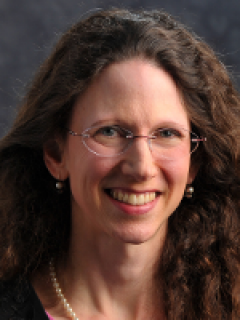Yale Divinity School is launching two new concentrated programs of study in the Master of Arts in Religion (M.A.R.) degree path: Latinx and Latin American Christianity and Religion and Ecology.
 The School is accepting applications now for students interested in entering the new programs as they debut in fall semester 2017.
The School is accepting applications now for students interested in entering the new programs as they debut in fall semester 2017.
“We are excited to lead the way in these important areas of study, which build on our existing strengths and address important demographic and social trends that are calling out for scholarly attention,” said Jennifer Herdt, Gilbert L. Stark Professor of Christian Ethics and Senior Associate Dean of Academic Affairs. “A rapidly growing percentage of U.S. Christians today are Latinx. As symbolized by Pope Francis, Christianity’s center of gravity is increasingly shifting toward Latin America. And the environmental crisis is the most critical issue facing humanity today.”
The new program in Latinx and Latin American Christianity is led by two new members of the YDS faculty, Erika Helgen and Benjamin Valentin. Helgen’s research focuses on Protestants and Catholics in the struggle for Brazilian national identity and on pluralism and religious history in Mexico. Valentin’s research and teaching concentrate on contemporary theology and culture; U.S. Latino/a Christianity and theology; Christianity in Latin America; liberation theology; and constructive theology.
The program allows students to focus their study on Latinx Christianity in the United States or Christianity in Latin America—or both, with an eye towards developing a more hemispheric perspective in relation to these fields and geographic areas.
***
Related story: Leading scholars join Yale Divinity School faculty
***
The Religion and Ecology concentration draws on faculty resources across the theological disciplines including biblical studies, ethics, liturgical studies, pastoral care, spirituality, theology, and world religions and ecology. It spans the study of eco-theology; eco-spirituality; eco-feminism; environmental ethics; and cosmology. The program grows out of the decades-long work of senior lecturers Mary Evelyn Tucker and John Grim in building the field of religion and ecology, most recently in collaboration with the Yale School of Forestry & Environmental Studies.
Faculty and their courses include:
- Willie Jennings, “Doctrine of Creation”
- Eboni Marshall-Turman, “Race, Gender, and Ecology”
- Teresa Berger, “Liturgy and Cosmology”
- Jennifer Herdt, “Animal Ethics”
Students in the new Religion and Ecology concentration are also able to take “Introduction to Religion and Ecology,” a joint offering of YDS and Forestry taught by Tucker and Grim, as well as other cross-school courses including “A Communion of Subjects: Law, Environment, and Religion”—a joint offering of Divinity, Forestry, and Yale Law School.
YDS Dean Greg Sterling described the new concentrations as expressions of two of the major goals outlined in the School’s strategic plan: diversity and the effort to build a living-building residential complex.
“Some of our new faculty make the first possible, and widespread commitment of faculty to eco-theology make the second feasible,” Sterling said. “It is essential that we have a curriculum that aligns with our orientation and ambitions as a school. The new programs reflect the commitment of YDS to address two of the most important concerns in our society.”
Added Herdt: “The arrival of our many new faculty makes this the perfect moment to launch these new M.A.R. concentrations. One is highly focused, and one is intensely interdisciplinary. Both signal our presence at the leading edge of theological education.”
Updates to this article:
The M.A.R. Concentration in Religion and Ecology is separate from the Joint Degree in Religion and Ecology offered in cooperation with the Yale School of Forestry & Environmental Studies (FES). Learn more about the Joint Degree in Religion and Ecology here.
The M.A.R. Concentration in Religion and Ecology was originally named “Faith and Ecology”. The name was updated to “Religion and Ecology” in this article on Jan 25th, 2017 to reflect a decision approved by the YDS faculty.